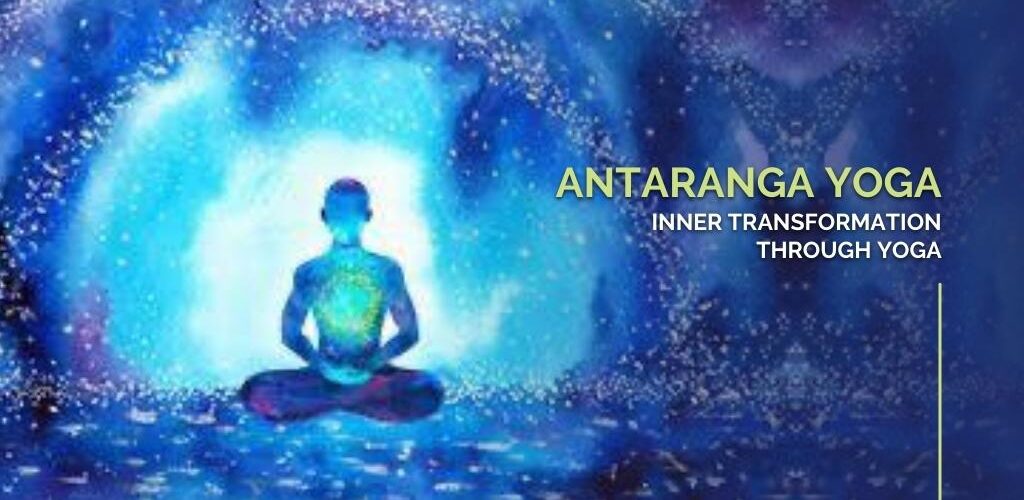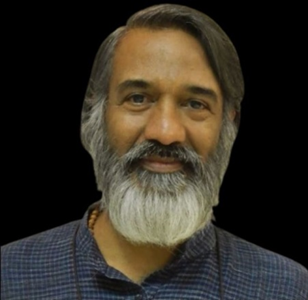
Inner transformation through Yoga – Exploring Antaranga Yoga
This Indica Course, conducted in collaboration with Ritambhara Ashram, by our renowned faculty Raghu Ananthanarayanan, is meant to impart an immersive understanding of Patañjali’s Yoga Sutra and help integrate it into the learner’s daily life.
Enroll for an inner transformation through Antaranga Yoga.
Faculty
15 March 2022 - 28 June 2022
6:30PM - 8:00 PM IST
Every Tuesday
Introduction
The ending of duḥkha and experiencing ānandaḥ is the fundamental goal of yoga. However, with an overemphasis on relaxation and health benefits, the popular idea of yoga has become restricted to a small range of practices like Asana, prāṇāyāma and mindfulness. There is also the tendency to focus on the ultimate end point of Yoga namely the union between jeevAtma and paramAtma.
The core of the teaching in the Yoga sutra is not focused on either of these extremes. It directs attention to the functioning of one’s psyche. A mind that is not capable sustained attentiveness is neither capable of comprehending the world, nor understanding oneself. The Yoga Sutra takes a step-by-step approach to enabling a person to have a deep insight into the way our mind functions. It not only describes the process that enables deep dhyAna and samadhi, but also the processes that cloud the mind and prevents it from acting from its full potential, experience joy and rest in profound peace.
Since Patañjali’s Yoga Sutra is built on the darśana of sāṅkhya, this course will start with unpacking the worldview of Sankhya. The participant will be able to gain a comprehensive foundation on which to anchor one’s self-transformative practice.
Learning Process
It is important to keep in mind that the Yoga Sutras are a called “anuśāsana sūtra” i.e., aphorisms that are to be practiced. The teaching methodology is therefore, based on the Upanishadic idea of śravaṇam- deep listening, mananaṃ– introspection and nidhidhyAsitavyam- practicing what is learnt. Reading material and video content will be shared before each class. The participant is required to do the reading and watching and make self-reflective notes before the class. Small group and large group dialogue will be encouraged in the contact classes.
Objectives
- To become familiar with Yoga as a pathway to emotional balance, self-reflection and self-transformation.
- To acquire a broader perspective of Inner work through Yoga beyond postures.
- Impart the understanding of the core concepts and frameworks of Indic Psychology.
Expected Outcomes
- Gain a traditional understanding of Patañjali’s Yoga Sutra as enunciated by the great master Yogacharya Krishnamacharya.
- Develop an understanding of the key practices that enable a mastery of one’s psyche.
- Understand the nuances of the psycho-spiritual evolutionary path that Yoga entails;
- Learn about the philosophical foundations on which Yoga is built.
- Learn to integrate these teachings in one’s day to day living
Beneficiaries
It is open to all who seek to deepen their knowledge and understanding of the Yoga tradition. It is specially designed for the benefit of:
- Yoga Teachers and Students
- Yoga therapists
- All yoga enthusiasts.
- Sadhakas and Spiritual aspirants
Outline of the Course
Understanding the ‘self’ (one’s limited identity and personhood) and transcending the self as a way to realize the “Self” is referred to as Antaranga yoga. This forms the core of the profound insights that Patañjali’s yogasūtra has to offer. This course will enable the participant to explore one’s inner realms through the following enquiry:
- What role does bahiranga yoga (practices like āsana, prāṇāyāma, yama and niyama) play in the scheme of self-transformation?
- How does the yogasūtra look at the processes of the psyche? How does it approach the practice of mastery over one’s psyche?
- What is the thread of systematic psycho-spiritual evolution that runs through all the eight limbs of Yoga as enunciated in the Yoga Sutra?
This Indica Course includes
15 live, interactive sessions (It is mandatory to attend live interactive sessions, though recorded videos will be available for future reference)
Curated videos that are viewed and reflected upon before the interactive sessions
2 dedicated Q & A sessions
Access to recording of live sessions
Suggested course readings
Certificate upon successful completion

